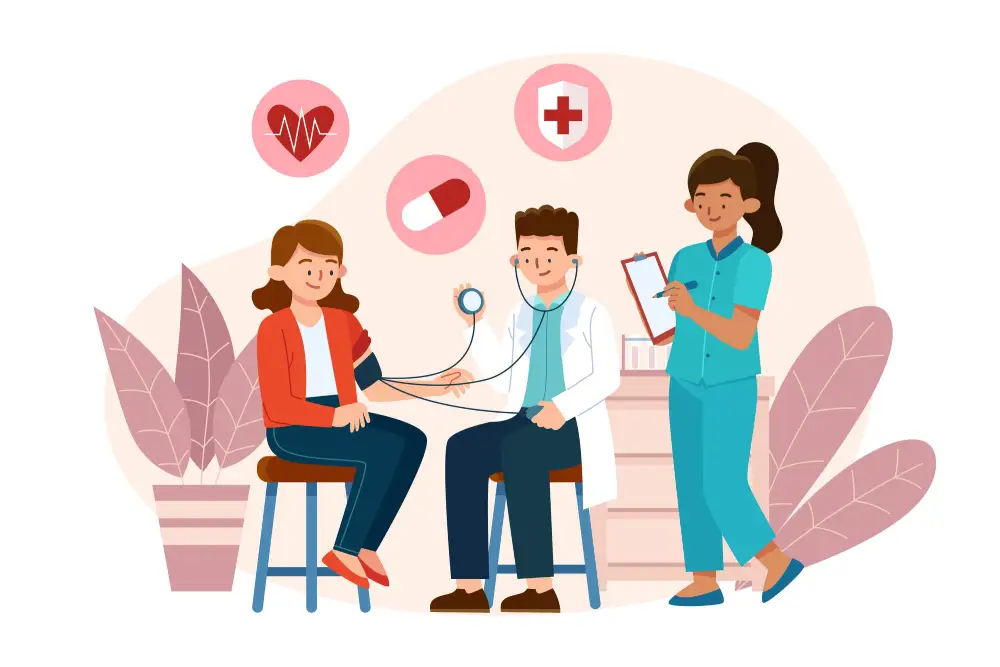Infertility Counselling: Expert Guidance for Overcoming Fertility Challenges


Infertility Counselling is special counseling for infertile couples to understand, cope, and resolve the psychological issues that arise due to infertility. Infertility has emerged as a prevalent medical condition, exerting an impact across various dimensions of one’s life.
An array of research studies and statistical data corroborate the fact that infertility affects approximately 15% of couples within the reproductive age demographic on a global scale.
In the United States, infertility affects approximately one in eight couples. Every year, there are approximately 6.7 million people with difficulty conceiving. Fertility experts accept that on average, 30% of the infertility cases they see can be attributed exclusively to the male, 30% only to the female, 30% to the female and male both, and in 10% the cause is not known.
These statistics are enough to show that infertility is growing these days and so are fertility treatments like IVF, IUI, surrogacy, ICSI, and many more.
Stress, depression, or a sense of despair may be distressing, and many people who are suffering from infertility experience these as well. Studies in 2015 found that major depressive disorder was elevated in people who underwent infertility therapy. So, what should you do regarding anxiety and depression? The solution to this problem is infertility counseling.
Get in touch for FREE SURROGACY CONSULTING:
Mobile: +91-8800481100 ( WhatsApp, Line, Viber)
Email: neelam@ivfconceptions.com


What is infertility counseling?
Infertility counseling sessions encompass a specialized form of psychotherapy, designed to provide support to individuals navigating the challenges of infertility.
This therapeutic approach proves particularly advantageous for those who have endeavored to conceive for a span of 6 to 12 months, contending with fertility obstacles.
These sessions are adeptly tailored to address various physical and psychological responses that may arise during the course of treatment.
Under the guidance of a skilled therapist, individuals are equipped to effectively manage the multifaceted challenges that accompany their fertility journey.
The therapy for infertility is a way to learn, navigate, and deal with a path you never expected to embark through – but eventually, that will carry you into parenthood.
Talking to a therapist about loneliness and your deepest fear will help you to understand how to treat depression and anxiety with infertility.
The aim is to help you control expectations, deal with concerns, deal with negative thoughts, and question helpless feelings so that you can concentrate on therapeutic choices and grow your family.

 Types of Infertility Counseling
Types of Infertility Counseling
Initially, counseling takes on a multifaceted approach, typically guided by medical professionals who determine the specific counseling modality suited for each infertile couple.
Notably, the counseling process encompasses three distinct categories: therapeutic counseling, decision-making counseling, and support counseling.
Throughout these sessions, patients are provided with comprehensive insights into the potential advantages and disadvantages of various infertility treatments, enabling them to make well-informed decisions.
When do you need to see an infertility counselor?
Seeking a counselor’s guidance is also advisable when your mental well-being becomes affected. Therefore, if you find yourself uncertain about the next steps following unsuccessful attempts at pregnancy spanning 6 to 12 months, it is recommended to consider undergoing a counseling session in your vicinity.
Take advice if you feel sad, anxious or so worried about your infertility that it is difficult to live productively in your life. If you feel “stuck” and need to explore your choices, you will also need to seek the advice of a consultant.
You can go to the counselor if you are feeling in any of the following ways-
- Permanent feelings of sadness, guilt, or lack of value
- Focusing and/or understanding problems
- Mood swings
- Turmoil and/or uncertainty
- Loss of interest in common activities and connections
- Isolation from society
- A shift in habits of appetite, weight, or sleep
- Enhanced drug or alcohol consumption
- A constant concern for infertility
- Focusing and/or understanding problems
- Thoughts of suicide or death

 How fertility counselors can help you?
How fertility counselors can help you?
Infertility counseling’s scope is far-reaching, encompassing invaluable benefits such as:
- Emotional Processing: Counselling facilitates the exploration and understanding of emotional responses tied to fertility struggles.
- Guidance Through Treatment: Fertility treatment can be intricate and emotionally demanding. Counselors provide adept guidance to help individuals and couples navigate this journey.
- Resolving Relationship Strains: Infertility can strain relationships. Counseling aids couples in addressing and mitigating these relational challenges.
- Alleviating Uncertainty: Fertility treatments are often unfamiliar terrain. Counseling equips individuals with the tools to grapple with the uncertainties that may arise.
- Managing Intimacy Challenges: Counselling offers strategies for navigating intimacy challenges brought about by “scheduled” intercourse during fertility treatments.
Questions To Ask During An Infertility Counselling?
Asking the right questions during infertility counselling empowers couples to make informed decisions and glean a deeper understanding of their fertility journey. A list of crucial inquiries to pose includes:
- Frequency of Sessions: How often will we engage in counselling sessions?
- Essential Tests: Which tests are indispensable for understanding our fertility concerns?
- Cost and Insurance: What are the associated costs, and will insurance cover fertility treatment expenses?
- Immediate Treatment: Will we commence treatment right away or follow a specific timeline?
- Clinic Success Rate: What is the clinic’s success rate?
- Fertility Drug Usage: Should fertility drugs be considered as part of our treatment plan?
- Stress Coping Mechanisms: How can infertility counselling aid us in managing stress?
- Pregnancy Complications: How are complications handled if I cannot carry a pregnancy?
- Treatment Safety: Are the suggested infertility treatments safe?
Where to find support during infertility treatments?
Support is the most important thing you may require when you are suffering from infertility, depression, and anxiety. The support can be anyone ranging from books to family members.
Several different sources can be used to get help. Books may provide knowledge about the emotional dimensions of infertility and comprehension.
Sustaining organizations and information meetings can reduce the feeling of isolation and offer opportunities to learn and share infertility with others.
Person and couple therapy provides the opportunity to explore your emotions with a trained therapist, define coping strategies, and try to find solutions to your challenges. It may also be helpful to speak to supportive family members and friends.


Where would I find an infertility expert?
Begin by asking your healthcare provider for references to qualified mental health practitioners in your area, a list of books and articles, and supportive tools for fertility issues.
Psychiatrists, psychologists, social workers, psychiatric nurses, or family therapists may be counselors. Click on the ‘Find a Professional’ button for a list of doctors and healthcare professionals in your area by visiting ReproductiveFacts.org.
Alternatives to infertility treatment
Infertility and psychotherapy care should be offered by independent practitioners rather than by the Clinical team according to an article published in the Journal of Assistive Reproduction and Genetics to enable sufficient addressing of problems concerning RTA success rates, RTA with reproduction by third parties, and problems leading to stoppage of treatment.
The study continues that patients should be provided support counseling and short-term crisis counseling after a failed IVF or ICSI trial by a mental health professional and other competent infertility counselors. Professionals of mental health can tackle severe psychological issues (e.g., anxiety, depression, marital/sexual).
Other sources guiding individuals in coping with infertility
The ASRM patient website has several links, including frequently asked questions, videos, fact sheets and booklets, and procedure and ethics guidelines for ASRM. There are also many articles on ASRM patient websites.
The other sources are –
- Livestrong fertility: A national program for cancer patients and survivors whose medical care is at risk of infertility. It provides assistance, hope, and reproductive knowledge to such patients.
- Adoptable Children’s North American Council: An agency that meets the needs of waiting children and their families, (nacac.org)
- RESOLVE: Resolve is a regional advocacy organization for infertility.
- Choice: An organization that assists single women who decide proactively either by adoption or pregnancy.
- Donation of Eggs: An association founded to provide parents with information and to exchange knowledge on all facets of the process of donating eggs, (org).
- Pop Luck Club: The Pop Luck Club has become a major voice to add to our wide-ranging LBGT culture (org)
- Magazines: Fertility Lane, Fertility Magazine, Gay Parent Magazine

 Conclusion
Conclusion
Therefore, the infertility counselor is a professional who deals with coping issues related to infertility and has a positive outlook on the whole infertility process.
If you’d like to learn more about IVF, Egg Donation, or surrogacy services globally, check out the rest of our website: IVF Conceptions. We offer legally secure and affordable surrogacy consulting services for FREE.
Get in touch for FREE SURROGACY CONSULTING:
Mobile: +91-8800481100 ( WhatsApp, Line, Viber)
Email: neelam@ivfconceptions.com


FAQs for infertility counselling
What is infertility counselling?
Infertility counselling is a specialized form of psychotherapy aimed at providing support to individuals and couples grappling with the challenges of infertility. Through tailored sessions, individuals gain tools to navigate the emotional and psychological aspects of their fertility journey.
How can infertility counselling help?
Infertility counselling offers a range of benefits. It aids in processing emotional responses tied to fertility struggles, guides individuals through the complexities of treatments, and supports couples in addressing relationship issues. Moreover, counselling helps alleviate uncertainties and equips individuals to manage challenges associated with “scheduled” intercourse.
When should I consider infertility counselling?
Considering infertility counselling is advisable when you are contemplating fertility treatment and are uncertain about the path forward. Additionally, if the emotional toll of unsuccessful pregnancy attempts over 6 to 12 months takes a toll on your mental health, seeking counselling is recommended.
What can I expect during an infertility counselling session?
During infertility counselling sessions, you can anticipate a safe space to discuss your emotional responses, concerns, and questions related to fertility treatments. Skilled therapists provide guidance, insights, and coping strategies to navigate the challenges you may encounter during your fertility journey.
Is infertility counselling effective for both individuals and couples?
Yes, infertility counselling is designed to cater to the needs of both individuals and couples facing fertility struggles. It offers tailored guidance and strategies to address emotional, psychological, and relational aspects of infertility, fostering a comprehensive approach to support.